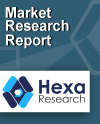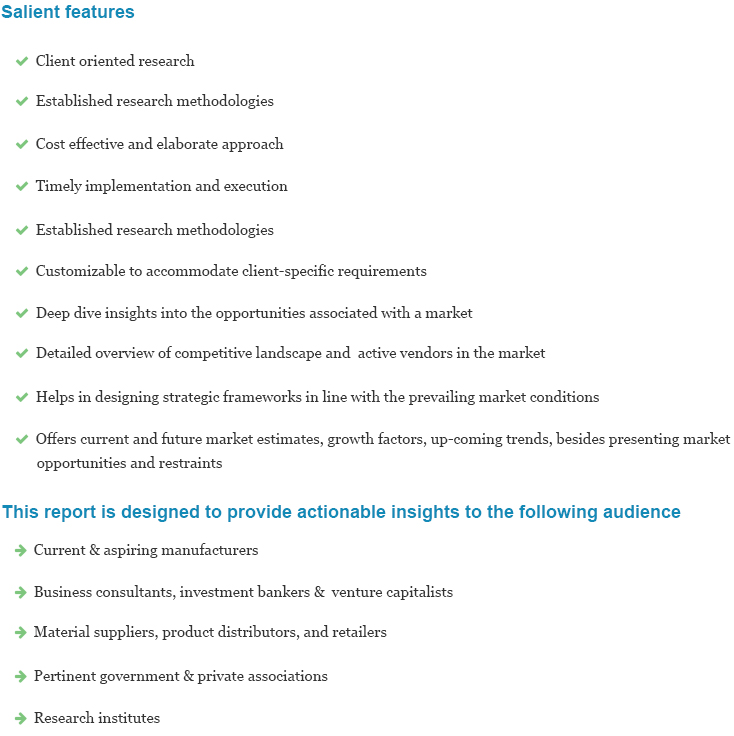
Autoimmune Disease Diagnostics Market Size, Market Share, Application Analysis, Regional Outlook, Growth, Trends, Competitive Scenario And Forecasts, 2012 To 2020
- Published: April, 2015
- Format: Electronic (PDF)
- Number of pages: 70
- Industry: Clinical Diagnostics
The rising prevalence of autoimmune diseases and consequent increase in healthcare expenditure globally are the major factors driving the autoimmune disease diagnostics market. Moreover, the favorable government initiatives in various countries are also a factor leading to the growth of global autoimmune disease diagnostics market. As stated by NIH, autoimmune disease is one of the top ten causes of women deaths. The rapidly rising demand for autoimmune disease diagnosis is a direct consequence of increasing incidences of autoimmune diseases all over the world. Various laboratories have moved toward installation of equipments which are able to conduct various tests simultaneously and provide fast results. The slow turnaround time of conventional autoimmune disease diagnostic procedures has encouraged various laboratories to move towards automation. The active awareness campaigns aimed to increase the awareness level regarding the diagnostics of diseases is the factor expected to further fuel the global autoimmune disease diagnostics market over the forecast period.
The autoimmune disease diagnostics market on the basis of product is segmented into localized and systemic disease diagnostics. As of 2013, the local disease diagnostics attributed the largest share in the market owing to the relatively higher patient awareness level and the presence of huge procedure volumes. In localized autoimmune disease segment, there are huge unmet needs of the patients for various diseases such as type 1 diabetes. This factor is expected to drive the localized autoimmune disease diagnostics market over the forecast period. The systemic autoimmune disease diagnostics segment include diagnosis of diseases such as lupus erythematosus (SLE), Ankylosing Spondylitis and rheumatoid. The rheumatoid segment attributes the largest share in the market owing to its most commonly usage in the diagnosis of autoimmune systemic inflammatory diseases. The entanglement of expensive organ assessment test in the rheumatoid disease is also a factor driving the systemic autoimmune rheumatoid disease diagnostics market. The innovation in products such as diagnosis based on drugs and presence of volume of tests at a large level are the factors expected to further drive this segment.
The global autoimmune disease diagnostics market on the basis of regions is segmented into North America, Europe, Asia Pacific and RoW. As of 2013, North America covered the largest share in the autoimmune disease diagnostics market in terms of revenue. The existence of favorable government initiatives such as Patient protection Act and Affordable Care Act and enlightened healthcare infrastructure are some other factors driving the market in this region. According to NIH, North America is accounted for the largest annual expenditure in autoimmune disease diagnostics market. The rapidly increasing per capita expenditure on healthcare is the factor expected to further fuel the growth of this region. Europe is accounted for the second largest market as of 2013. The technological advances in autoimmune disease diagnosis such as novel biomarkers and potable diagnostic equipments and increasing incidences of autoimmune diseases are the key factors for the growth of autoimmune disease diagnostics market in this region. The factor expected for the further growth of this region is the huge untapped opportunities mainly in the Eastern Europe.
The rivalry levels for the Industry are expected to be moderately high over the forecast period owing to the consolidated nature of the market. This consolidated nature of the market has lead to the high presence of mergers and acquisitions in the autoimmune disease diagnostics market. Manufacturers are facing price based competition and they are under continuous pressure to bring innovation in the products. Some of the key players in the global autoimmune disease diagnostics market include Quest Diagnostics, Bio Rad, Hemagen Diagnostics, Crescendo Bioscience, bioMeriux SA, Abott Diagnostics and Roche Diagnostics. These players are constantly creating various competitive strategies such as collaborations, expansions and acquisitions to keep a strong foothold in the global autoimmune disease diagnostics market.

Choose License Type
- World's largest premium report database
- Transparent pre & post sale customer engagement model
- Unparalleled flexibility in terms of rendering services
- Safe & secure web experience
- 24*5 Research support service
